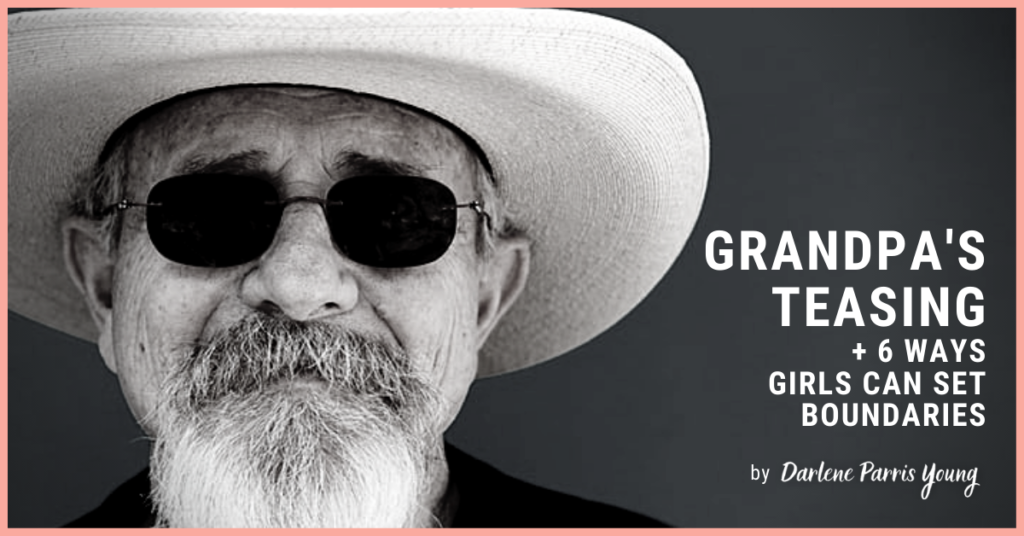
I recently came across a video of a grandfather teasing his granddaughter on YouTube. Even though this little girl asked her grandfather to stop teasing her, he would not back off. It made me squirm, although I imagine that to him it was his way of communicating with this little girl because he sincerely did love her.
I have seen this type of scene played out many times in my own life—in my family and other families. A girl is uncomfortable, but the man who is teasing doesn’t let up. My mom was always more concerned in keeping the peace and protecting my dad’s ego if he was teasing me. At that time back in the 70s women didn’t have much of a voice. Social conditioning taught women to be silent.
I learned the hard way that I needed to find my voice. My own strength and refusal to keep quiet is the result of seeing women being mistreated for decades, and their prospects ignored. As a result of all of this I made a vow to put an end to this cycle.
I was not going to have my daughter growing up thinking that her wishes don’t matter. My daughter learned that she is allowed and expected to say, “No” if her boundaries were tested.
Here are six ideas I tried to instill in my daughter, and that I think all women should remember.
- You are allowed to change your mind. Something can start out fun and then turn… not fun. And that’s okay. You’re allowed to like something one week and not like it the next week. This is not a character flaw. It’s just a natural part of growing up and deciding what works for you.
- “No” is a complete sentence. You don’t have to explain or ask for forgiveness for saying no. Just say no, and get yourself out of the situation.
- Trust your gut. If something feels creepy or inappropriate, even if you’re not sure or even if you can’t put your finger on it, it’s okay to say no, and get yourself out of the situation. Your gut is powerful and wants to protect you.
- You are not responsible for other people’s feelings. Be polite to a point, but when it comes to setting boundaries, remember that your first commitment is to yourself and your own safety and comfort.
- A conflict or a disagreement is not the end of a relationship. Sometimes setting boundaries results in a conflict or argument. Sometimes it’s hard to communicate your boundaries. That’s okay. Just because something is hard to talk about does not make it worth compromising your own safety and comfort, and it does not mean that your relationship with the person you’re trying to communicate with will end.
- People who love you will still love you if you say “no.” If someone loves you and you say no, it might ruffle their feathers or make them examine their own actions, and that can be uncomfortable. But if someone truly loves you, they will keep loving you and respect your boundary.
It’s a different time and nowadays we are trying to teach our kids to listen to intuitive signals when it comes to setting up their own personal boundaries. Of course everyone’s boundaries will be a little different based on their upbringing and what they are comfortable with. How do you talk to your sons and daughters about standing up and enforcing their boundaries?
